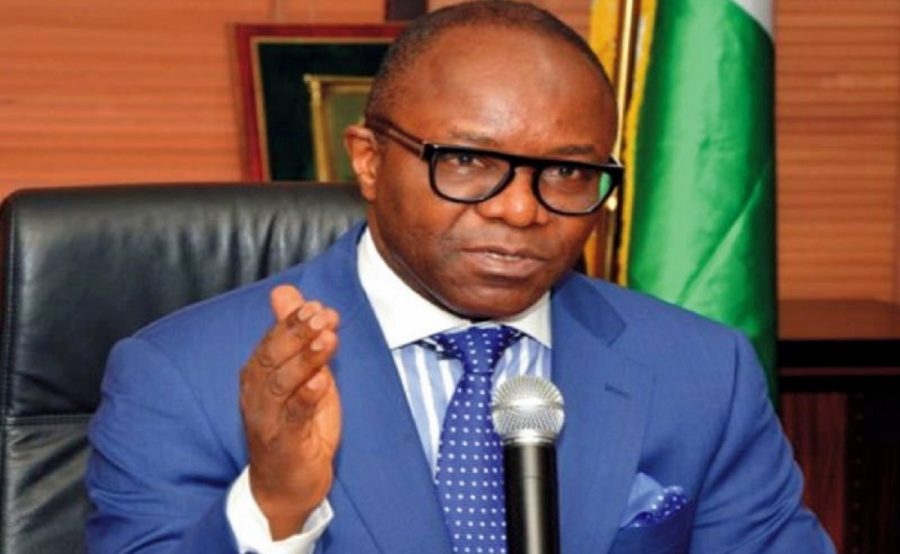The Nigerian Minister of State for Petroleum Resources, Dr. Ibe Kachikwu, has reportedly disclosed that no International Oil Company (ICO) is planning to exit Nigeria.
Kachikwu reportedly stated this while fielding questions from newsmen after visiting the ExxonMobil Erha Floating Production Storage and Offloading vessels (FPSO) facility today in Lagos.
“I have confirmed that it is not true, there are going to be here for a long stay, they will be here over the next 50 years, they are looking for more, they are doing all kinds of things, they just begun the exploration campaign first time in four years because of the new cash call policies we put in place.
“That is not a sign of somebody who is exiting. But different from not exiting is to be aggressive. ExxonMobil needs to be more aggressive in terms of development policies.’’ -Kachukwu
An earlier report had claimed that ExxonMobil was looking to divest its business in Nigeria and focus on new developments in U.S shale and Guyana.
Meanwhile, Mr. Richard Laing, an Executive Director at ExxonMobil, commended the minister for making out time to visit the facility. He also reiterated that the company has no plans to exit Nigeria.
“We are happy with Nigeria, We have our differences, we don’t agree on everything. we are happy and content. We are delighted over the minister’s visit and we are happy that he has come back to his spiritual home.”
PRESS STATEMENT
Dr. @IbeKachikwu’s Latest Visit to ERHA FPSO Operated by @exxonmobil to Provoke Increased Crude Production and Unlock Gas in Nigeria
…@ExxonMobil_NG firmly debunks unsubstantiated rumor about the Organization’s exit from Nigeria.
Read: https://t.co/5z8vd7qgId pic.twitter.com/bRS3oqAloh
— Ministry of Petroleum Resources, Nigeria (@FMPRng) April 13, 2019
More Reasons why Oil Companies are not thinking of leaving the country
The Minister of State for Petroleum Resources, Dr. Ibe Kachikwu, recently disclosed that Nigeria has enough crude reserves to last the country for the next 40 to 50 years. However, the Minister disclosed that gas was still laying underground, untapped.
Gas commercialization policy in place
The Minister further explained that a lot had been done under the gas commercialization policy, adding the LPG deployment had started in the country.
Similarly, the minister disclosed that the government had received submissions from all oil companies keying into the policy to help exit gas flare.
“It is a different thing from dealing with gas development itself. There are many ways to stop flare, you can inject it and that is what has helped us achieved about 70 percent factor in gas flare exit but that is not real exit, that is, manage the exit.
“For you to exit it, you must have the right commercial terms so that people can produce gas and make it commercial.”
Erha FPSO is an investment worth $3.5 billion
The fields which are reportedly located 97km offshore Nigeria, in water depths ranging from 1,000m to 1,200m, is estimated to have been developed with an investment worth of $3.5 billion.
The FPSO is a floating vessel which produces and processes hydrocarbons for the storage of oil, used by offshore oil and Gas industry.
Erha FPSO reportedly has a liquid storage capacity of 2.2 million barrel, making it one of its biggest kind in the world. Also, the Erha field and Erha North satellite field was completed in 2006.
More opportunities in Nigeria’s Oil and Gas Sector – about 41 billion barrels of oil reserves
Recall, the Group Managing Director of the Nigerian National Petroleum Corporation (NNPC), Maikanti Baru, recently disclosed that after more than six decades of oil production, Nigeria still has over 41 billion barrels of crude oil reserves untapped. Also, the NNPC boss stated:
“In Nigeria, NNPC is currently drilling Kolmani River-II Well in the Benue Trough, one of Nigeria’s several frontier inland Basins, with about 400 billion cubic feet of gas expected to be encountered.”– Baru
In agreement to this, Kachikwu stated that gas would be a parallel income stream for the country if everyone key into implement the gas commercialization policy.
“There is so much we can do with oil, we are doing that. I like to see oil go up in barrels, up to 3 million barrels but most importantly, I like to see gas begin it life.
“If you look at the production, a lot of gas is being rejected. And everybody is talking of gas in the country and gas is going to be parallel income stream for the country.”
















